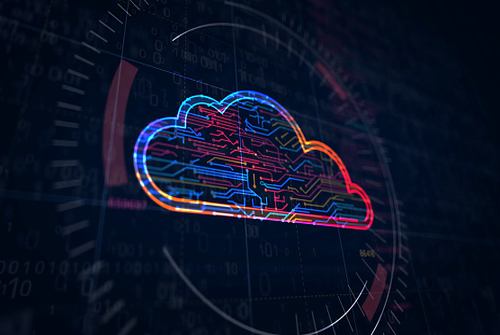Why Integration Should be in the Cloud with an API-First Approach

Why is it critical that you move integration to the cloud?
I’m going to answer that for you with these simple words – adaptability and agility.
Adaptability means that you evolve your supply chain structure to respond to changing market conditions. Agility means that you can quickly sense and respond to any type of change.
But when you put adaptability and agility together, they enable you to deal with what you know -- and what you don’t know -- about what exactly is impacting your supply chain.
Ecosystem integration enables you to deliver the customer experiences that your business stakeholders expect, no matter what is happening in the world, be it an economic downturn, a natural disaster, or yes, a global pandemic.
The outdated way of thinking is to buy monolithic ERP, CRM, HR, or Finance apps, and then painstakingly stitch them together in an on-premise environment. I see too many companies today being held hostage by this old school “inside-out” model.
The post-modern ERP world of the cloud is a much better alternative.
The cloud is a dynamic environment that fosters adaptability and agility, providing you infinite flexibility to add, change, or remove applications as quickly as needed. It’s a seamless, on-demand data and information flow yielding real-time insights to help you make the very best decisions for your business.
For the post-COVID era, it is critical that you devise a holistic way to embrace the cloud so you can organize your API integration roadmap in an intelligent way, and pick and choose what you add on or discontinue from your cloud IT environment.
API-First Integration
Modern integration technology allows you to manage workloads, whether on-premise or in the cloud to evolve your technology and transform your business as needs dictate, all on your own terms.
In the cloud, you also will receive security protection, real-time upgrades via APIs, on-demand computing, sufficient elasticity, high availability, and continuous data and information updates.
It has everything you need, and you can connect it simply via APIs. This is why we are advocating an API-first approach to ecosystem integration.
EDI will always have a place, but you can’t do everything you need with just EDI, certainly not in a rapidly transforming world where all of your partners are migrating to the cloud (if they haven’t already).
If your integration isn’t in the cloud, and you are not thinking “outside-in” about your end-to-end business processes that comprise your ecosystem, you will not have the adaptability and agility to transform quickly enough to compete in this age of digital transformation.
You must be able to leverage APIs to quickly and securely add anything you need, including apps, marketplaces, new customers, trading partners, data sources – whatever you need whenever you need them. Business velocity automation is driving change. It’s a recurring process called “creative destruction,” where what’s old is continuously replaced by what’s newer, better, smarter. And the cloud, as a fluid way of working, is creating the context that is enabling it to happen.
My keynote address – “Emerge With Urgency: Creating Value Through Creative Destruction” -- is now available on YouTube, where I go into further details about ‘creative destruction’ and how businesses everywhere can emerge a winner.
Check it out, and let’s emerge from 2020 stronger than we ever were before!

About Cleo
